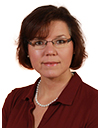Promotion of gender equality
While gender equality in the sciences at universities and in academia in Germany has in general progressed over the last decade, the situation is still far from satisfactory.
Affirmative action in staff recruitment has been working successfully, but clearly more effort must be made to identify and remove existing barriers.
In the participating institutions of the CoE, the percentage of women in science and engineering at different levels in their scientific careers reflects the situation at German universities. For instance, among the students of Chemistry at the TU Berlin about 40% are women and this percentage remains largely unchanged all the way through to graduate level. The distribution is less favourable in physics and chemical engineering, whereas in biology (HU, UP) the proportion of women is traditionally higher. In all disciplines, however, the number of women drastically decreases at higher levels of the career ladder, where women become clearly underrepresented.
Of the 54 professors who are of central significance to the CoE, 19% are female. This is 42% at Junior Professor and Junior Researcher level. These are higher percentages than those of the participating institutions for the respective academic levels, which means that the CoE has actively sought and successfully attracted an exceptionally high percentage of women. Nevertheless, the percentage of women in the CoE is still not satisfactory and leaves much room for improvement. In particular, the observation that women with young children appear to run into considerable barriers has led to the implementation of a set of measures as described here.
These measures are intended to reduce the barriers to pursuing scientific careers and having a fulfilling family life at the same time. We strongly believe that, in order to improve the disproportionate underrepresentation of women across all academic levels, a group of measures has to be taken aimed specifically at promoting the scientific careers of women, so that we can eventually approach a more equally balanced representation of women, particularly at the level of Professorships.

